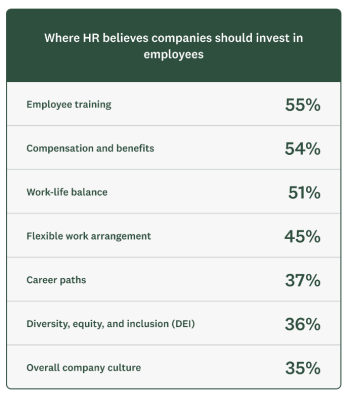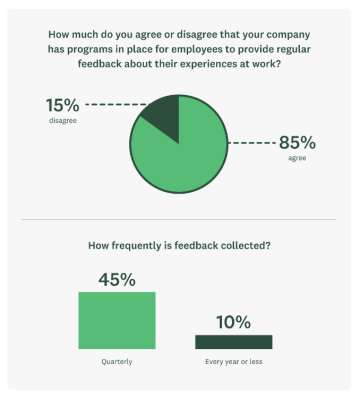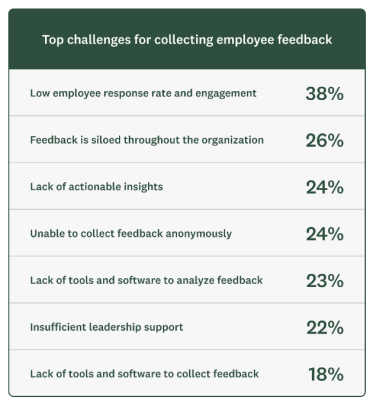A lot has changed for companies over the past few years and HR professionals are being challenged to understand what comes next. Priorities have shifted as the workforce has become more diverse and dispersed. Employee expectations have evolved—and employee engagement, compensation, recruiting, and development need to evolve, too.
So, where do HR teams start? In a recent study, we asked HR professionals about their priorities, what employees needed, and company goals. The responses they delivered covered the entire employee lifecycle.

Recruiters are being asked to find specialized skill sets that are often scarce and in high demand. Learning and development teams have to create the next wave of middle managers and leadership, as well as individual contributors with current, applicable skills. And HR business partners are challenged with retaining employees in an environment where remote work and global expansion means more opportunities—and less face time for engagement.
Reimagining the workplace
The most successful companies won’t just adapt to these changes—they will rethink the workplace and what they can provide to their employees. Does that mean more flexible working hours or more advancement opportunities? Will big salaries attract top talent, or does a culture that supports innovation and access to leadership win over coveted candidates? The only way to know is to ask.
In our study, we found that the large majority—85%—of HR professionals say they collect feedback regularly, and almost half say they do it on a quarterly basis. That’s good news, but making sure that collected feedback addresses current challenges is where HR teams need to focus.

HR needs to check in frequently and collect feedback in a variety areas—engagement, satisfaction, training, and management effectiveness to name a few. They need to balance what employees want against what companies need. The bottom line is that every company will have a unique roadmap to reach their goals, and retaining employees and keeping them motivated and satisfied is a critical part of that journey.
Solutions for addressing HR priorities
Collecting timely, honest employee feedback that captures actionable data requires thought and planning. Our study revealed that HR teams have challenges around their feedback efforts. From low response rates to not being able to take action on collected data—HR often has the best intentions but needs help creating a feedback program that delivers real benefits.

We put together an informative guide that can help HR teams identify the areas their company needs to focus. We included strategies to improve employee engagement, recruiting and retention, learning and development, and how to create the optimal compensation and benefits plan. You’ll find helpful links to templates and solutions that are ready to be used and purpose-built for HR pros to collect feedback in all areas that impact the employee lifecycle.
Ready to learn more? Get the guide.
Discover how to build a world-class workforce
Solutions and strategies on how to harness feedback to improve employee performance.



